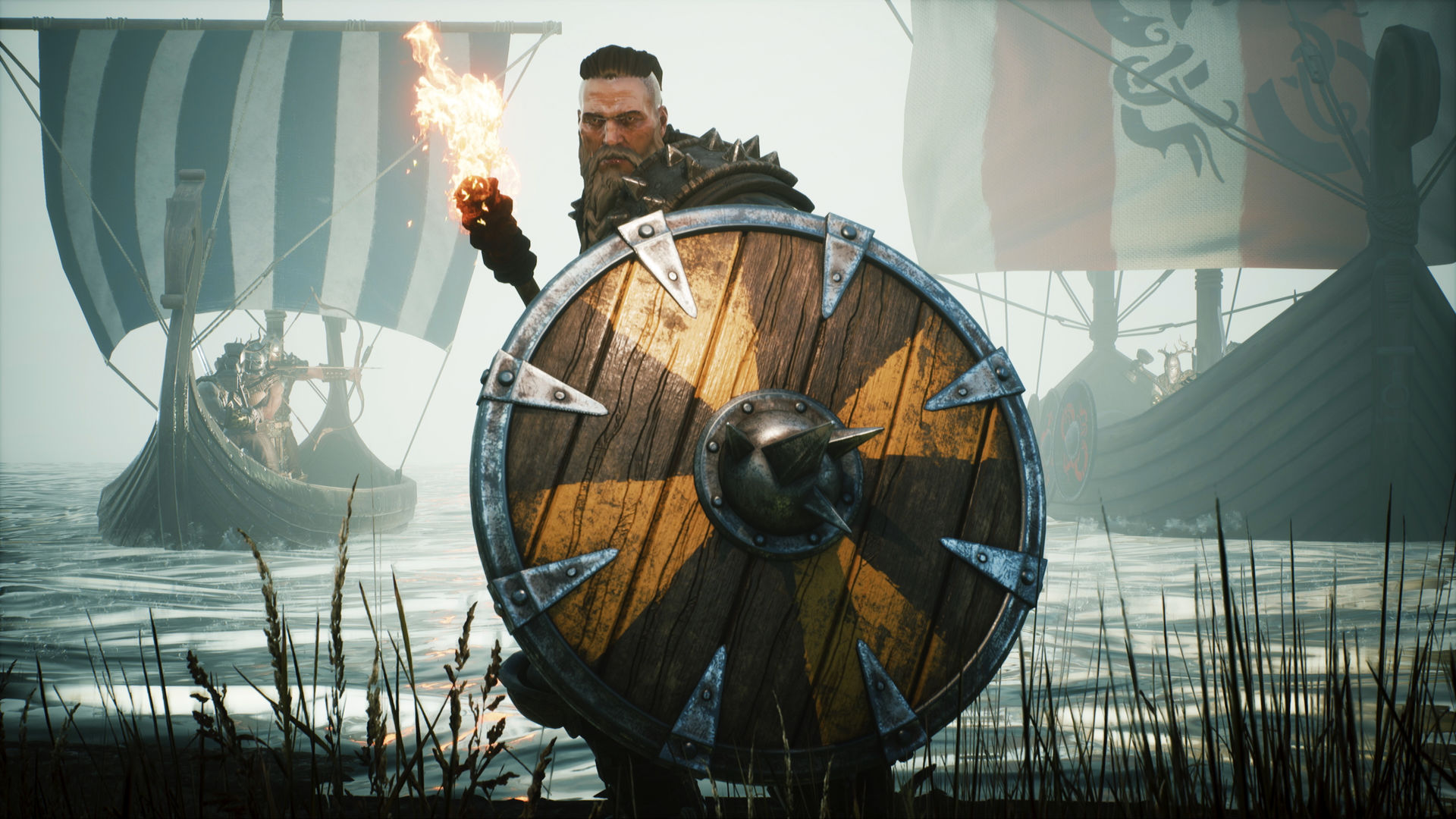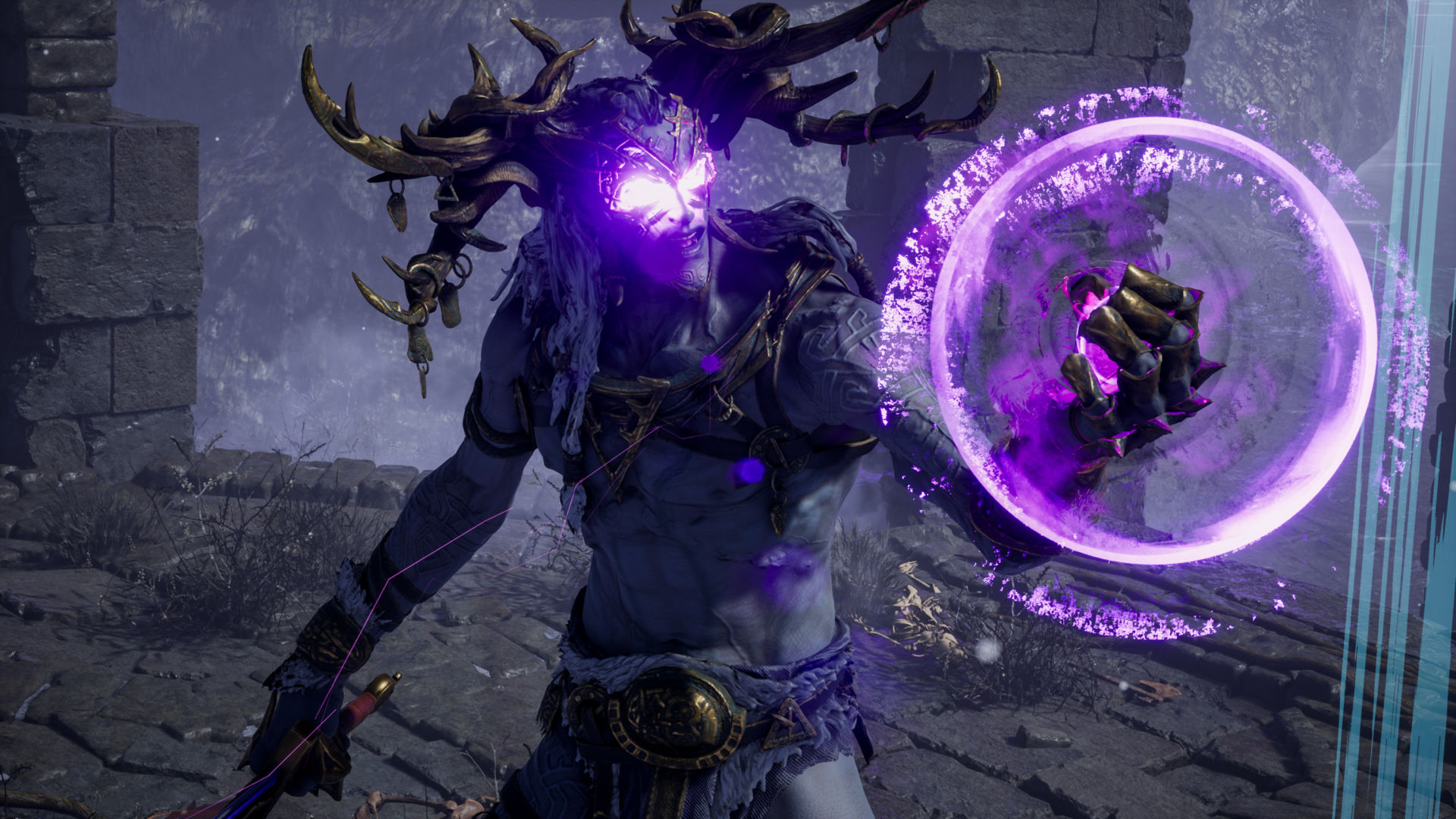'We got stabbed in the back': How Rune 2 survived one of the worst game launches in years
The day after Rune 2 launched, developer Human Head Studios closed its doors. But that was just the beginning.

Some game launches go smoothly, and some don't. Very few go as spectacularly wrong as the rollout of Rune 2. More than two years after it was announced, the game launched on the Epic Games Store on November 12, 2019—and on November 13, developer Human Head Studios closed its doors, leaving the game orphaned on day one. As if that weren't bizarre enough, Human Head resurfaced the very same day as Bethesda Softworks-owned Roundhouse Studios.
"Rune 2 will be the final game for Human Head Studios," community manager Katherine Stull wrote on the Human Head blog at the time. "After 22 great years of making games as an independent studio, economic realities have forced us to make the decision to wind down the company and close its doors. But while we are closing the book on Human Head, we are not closing the book on the amazing team we have assembled."
Stull explained that Human Head contacted Bethesda and negotiated the opening of Roundhouse Studios, which picked up its entire former staff. Human Head and Bethesda had an existing relationship, though not an entirely positive one. Human Head was the studio that fought with Bethesda over the original version of Prey 2, which the publisher ultimately cancelled before rebooting the series with Arkane Studios instead.
Before Rune 2 released, things weren't exactly looking peachy for Human Head. In 2019, its game Survived By was cancelled while in Early Access, and in 2018 it released The Quiet Man with Square Enix, a game we called "spectacularly bad."
If you want to tank a game ... this is probably the playbook on how to do it.
Sam Goldberg
I reached out to the new Roundhouse Studios and its co-founders Ben Gokey and Chris Rhinehart for more information on the sudden dissolution of Human Head and its dispute with Ragnarok Game LLC, the company that published Rune 2, but received no response. Efforts to contact Human Head's legal representatives, as recommended by Bethesda, also went nowhere. Whatever the reasons for the surprise shutdown, though, the bottom line for publisher Ragnarok is that it was, in every possible way, a disaster.
"If you want to tank a game ... this is probably the playbook on how to do it," Ragnarok general counsel Sam Goldberg told me. "Show up for no marketing, don't support streamers, make an announcement the day after the game launched that you're no longer going to work on it and you've joined some competitive company—I mean, what more could they do?"
Human Head told Ragnarok that it was shutting down on November 7, less than a week before Rune 2 was set to go live. It refused to say why it was closing so suddenly, Rune 2 executive producer Matt Candler said, and did not allow the publisher to attempt to hire any of its employees as contractors. The developer agreed to support the game post-launch while Ragnarok worked out a longer-term plan, but Candler said Human Head ghosted them on that, too.
The biggest gaming news, reviews and hardware deals
Keep up to date with the most important stories and the best deals, as picked by the PC Gamer team.
"We did a ton of great work, set up a lot of interviews and a lot of streams, spent a lot of money, and they never showed up," Candler said. "We launched the game ourselves, we had a great day on November 12. We got initially, really strong reviews about the game, saying that this is kind of a cool indie game. And then Wednesday morning, the 13th, the first thing I see is people saying, look, Bethesda makes an announcement that they've founded a new studio in Madison, and all the employees of Human Head are now employees of Roundhouse Studios, a Bethesda studio."
Making the timing even more surprising, Human Head left behind money by bailing out early: Candler claimed the studio would have earned $67,000 on the final milestone, due after release, and another $110,000 for supporting the game post-launch.
They actually did everything they could to prevent us from supporting the product.
Matt Candler
"They could've kept their mouth shut and collected the money, and we would've been like, yup, here you go. And we would've gotten through a successful launch together," Candler said. "We could've transitioned the game if they weren't able to participate anymore, we could've transitioned naturally—here's the source code, we'll help you find somebody. But they didn't do that. They actually did everything they could to prevent us from supporting the product."

Candler immediately began reaching out to all the top Unreal developers he knew, attempting to put together a team to keep the game going. Several expressed interest, but the recovery effort was hampered by yet another bizarre twist: Most of the developers Candler spoke to wanted to look at the source code and assets to evaluate the scope of the job, but according to Goldberg, Human Head wouldn't hand it over at first.
“They refused to give us the source code that was our property, to be able to update and fix the game for the community,” Goldberg said. “So not only do they abandon us—full stop, full abandonment, total stab in the back—I mean, again, who does that? But then we don't even have our property, the source code, to be able to update the game.”
Candler’s first hires were Symmetric Games co-founders Dan Nikolaides and Vic Lopez—"They're fucking Unreal wizards, some of the best in the business," Candler said—who started the process of reworking the game with older builds and assets. Once the wheels were turning, they brought in more people—an animator, a programmer, an art director, a sound guy—and committed to an extensive overhaul of Rune 2.
"It took me all of December. I called all my friends and all my favors in, and said, I need your help, guys. We're in bad shape. We still have a great opportunity, because we own everything," Candler said. He also credited Epic for being “a fantastic partner” throughout the process. “And Epic said thank you to us—thank you for not abandoning this game, not walking away."
It was a major undertaking—Goldberg claimed that Human Head's "comprehensive failure" to meet objectives left the game in far worse shape than the publisher had realized. But once work on fixing the underlying systems of Rune 2 began in earnest—and after Human Head turned over the source code at the end of 2019—the new team decided to expand the scope of the game beyond what was originally envisioned.
New features in the works include a quest system, NPCs, deeper character stats, a horde mode, and multiplayer support for up to 20 people. The work went well enough that the four principals involved—Candler, Goldberg, Nikolaides, and Lopez—decided to lock down their partnership as Studio 369.
"We are already in discussions about future projects, planning to start. Right now our main focus is the Rune 2 Steam launch and supporting the game on the Epic Game Store," Candler said. "But we do have some game pitches out, we are talking with other publishers, we are talking with other finance options—that's what we're experienced at doing, raising capital—we really like working together and our plan is to grow the team and do some other high-end Unreal projects."
It sounds like a net positive, and Candler acknowledged that some good things have come out of it. But he also pointed out that the good is relative to the calamitous days in November and December, when Rune 2 was on the verge of collapse. And apart from that, he and Goldberg clearly still feel betrayed by Human Head.
You don't do this to people.
Matt Candler
"When you're emailing people and you're talking to them every day, you're fighting every day to make the game as good as it can be for launch, and they're telling you that they're gonna be there, and you're putting your own personal money into it, which is what Sam and I did to extend the game past its deadline, and it just comes out of nowhere... You guys couldn't just be honest with us?" said Candler. "I'm sure you were having difficulties too, but you couldn't just be honest?"
"We got stabbed in the back," he continued. "You're not going to easily get over that. It's not just—yes, we're builders, we want to keep building games, we want to do right by the community for Rune 2, we're going to build a great game. We're going to continue to improve it. But I'm sorry, of course there's bitterness, and of course we're going to be upset, and there's going to be—that's going to last. You don't do this to people."
For now, Studio 369 is looking ahead to Rune 2's launch on Steam later this year. It will feature "all the Steamworks stuff," like achievements, badges, and maybe custom gear, but the big hook will be the addition of a hefty new PvP-focused mode—but not a battle royale—currently in development that the team hopes to be able to show off soon. It also recently rolled out a major “narrative update” on the Rune 2 PTR that features a complete rebuild of the game’s first chapter, Age of Awakening.
"We're making lemonade here. We're happy with 369, the team and the progress, and the response from the community. But we're not happy with what happened, and it is not okay, and I think that is clear with respect to the legal action that we've been compelled to take," Candler said, referring to Ragnarok's ongoing lawsuit against Human Head. The company is seeking restitution of financing for the game's development and at least $100 million in compensation.
"What's really been cool is how many people want to talk to us and work with us, because it shows we stood up. They've said, 'This is the caliber of people we want to work with.' I'm getting more business opportunities than I ever did this time last year, because people are saying, God, you guys stuck around."
Human Head Studios and its former management have thus far opted not to defend themselves outside of court. That leaves the story one-sided for now, although some aspects, including that Human Head closed its doors when Rune 2 launched and reformed the next day as Bethesda-owned Roundhouse Studios, are not in dispute.

Andy has been gaming on PCs from the very beginning, starting as a youngster with text adventures and primitive action games on a cassette-based TRS80. From there he graduated to the glory days of Sierra Online adventures and Microprose sims, ran a local BBS, learned how to build PCs, and developed a longstanding love of RPGs, immersive sims, and shooters. He began writing videogame news in 2007 for The Escapist and somehow managed to avoid getting fired until 2014, when he joined the storied ranks of PC Gamer. He covers all aspects of the industry, from new game announcements and patch notes to legal disputes, Twitch beefs, esports, and Henry Cavill. Lots of Henry Cavill.


